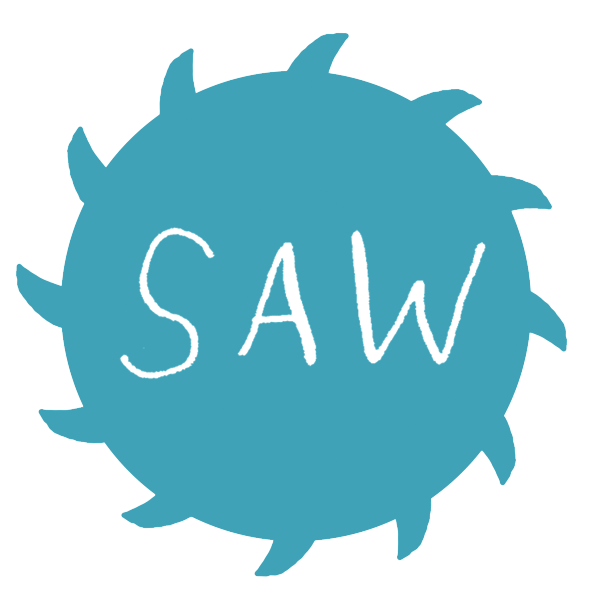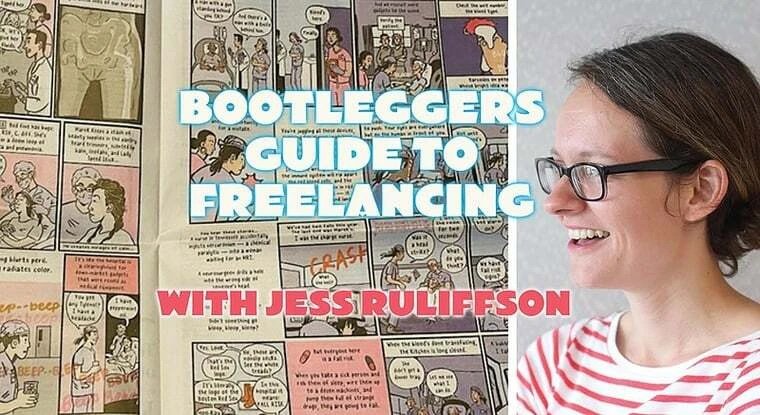The Terrible Anvil - Answers to Pitching- Episode 6
Everything you ever wanted to know about pitching but were too afraid to ask
In this week’s episode of The Terrible Anvil, we talked about PITCHING!
We tried to touch on these three ideas, hovering for quite awhile on the first one:
PITCHING short form work (nonfiction)
PITCHING a book proposal to a literary agent or publisher (graphic novels)
General musings on how to make money and art (Tom Hart talked about this on Jessica Abel's Autonomous Creative podcast here.)
Some really great ideas from the chat that we hope to touch on in Episode 7 (a sort of sequel, with maybe more of a focus on BOOK pitching):
Tom mentioned the expectations of what a book contract or publishing project will do for us.
Sally mused: If we're not bankable, maybe we're MORE relevant.
Tom shared a link to CHILL SUBS, where you can look for places that publish short comics: https://www.chillsubs.com/ and spoke about the FLOW anthology pitching process (theme relevance, no pay, a round of roughs and finishes with some small edits).
Alison Kent also had a good point on networking versus making real connections: I think it was Jay Sherer or Caleb Monroe said that building relationships—friendships, not networking necessarily—is key. Share info, refer your friends. They said it was the most important thing
Some Quick Tips on Cold Emails (or DM-ing art directors)
1) Write a letter.
2) Be a fan of the editor’s work!
3) Be authentic, "might like my work, or I’m working on a book, maybe we can work together" etc
4) Share your work via URL to website or previously published work (not PDFs or JPGs unless they ask)
Remember: *Be polite, be brief, but no need to undersell your stuff or apologize!*
Alison also shared: Sharing your pitch ideas with friends seems to be a great way to focus your pitch.
Sally remembered: Emil Wilson said in an Sunday Open Studios conversation something really helpful to me. Rather than seeing a call (for entries) and trying to generate an idea, it's easier to see if the call reminds you of something that you have already come up with. So it makes all that stuff we create without obvious goals is resource building.
Jim had a great comment: Pitching as a nobody is a challenge. I feel like I have to create a resume (so to speak) before I have enough credibility to be considered as an actual cartoonist. The SAW themed anthologies are helpful in building a reputation.
Sally and Leonie were also wondering: Should the pitch include the 'end' or the 'why' for the comic? Or what was learned in the process of investigating the topic of the work, etc.? I find I leave that stuff out for short form pitches, and include it in book proposals.
Jim also said: I would be interested in hearing what others are doing to promote their self-published work. In one sense, I feel like the actress in La La Land who stages a one-woman show, which she feels is a total disaster until it turns out that there was a Hollywood casting director in the audience. I'm hoping that a talk I give to a handful of people at a library or senior center might turn into something like that. A guy can dream, right?
Sally also said this: It's good to try to frame the experience as offering something of value rather than begging for support/validation/etc.
THERE'S LOTS MORE! Tune in NEXT WEEK for Episode Seven: More About Pitching
You can always check out episodes via the SAW YouTube channel or wherever you get your podcasts.
P.S. An early and auspicious pitch:
Here's a photo of me and Tom at the Small Press Expo around 2012 (?) after I applied for the SAW Emerging Cartoonist Grant (I can't remember the official name). I hope in the future when SAW gives grants we will print them on those giant checks and hand-deliver them!!!
WANT TO MAKE AND READ MORE COMICS?
Do you have a story inside you that’s just itching to come out, but want some guidance to help push it out?
Learn more about intensive comics learning with teachers at SAW by checking out SAW’s Year-Long Intensive Program and our Six-Month Graphic Novel Intensive.
Be sure to also check out our Online Courses, some courses are offered year-round and are always enrolling while others are limited in space and come around only once a year!
Our Graphic Memoir Intensive runs year round and is always enrolling. It includes access to a vibrant working community, twice-monthly live online check-ins, weekly prompts, and access to SAW’s Monthly Pro Calls!
Our Comics Flow Group, or SAW FLOW MEMBERSHIP, is also year-round and always enrolling and is SAW's MOST AFFORDABLE course option with access to Monthly Pro-Calls!
And, of course, come see what we’re all up to on SAW's Mighty Network anytime!
CHECK OUT JESS’S COURSE ON FREELANCING!
If you're curious about freelancing/pitching short-form and long-form comics projects, I'm teaching a course with SAW online (four weeks, beginning March 20th) called The Bootlegger's Guide to Freelancing!
Do you want to learn how to break into the freelance comics world? In this course, we’ll spend four weeks going over some of the basics in getting your name in bright lights (aka publishing work with clients)! The scope of this course is centered on short-form freelance comics, especially nonfiction, and graphic novel length book proposals. We’ll discuss sharpening your own voice and branding, finding clients, setting professional boundaries, contract do’s and don’ts, and how to turn freelance pieces into book-length work or material for a book proposal.


